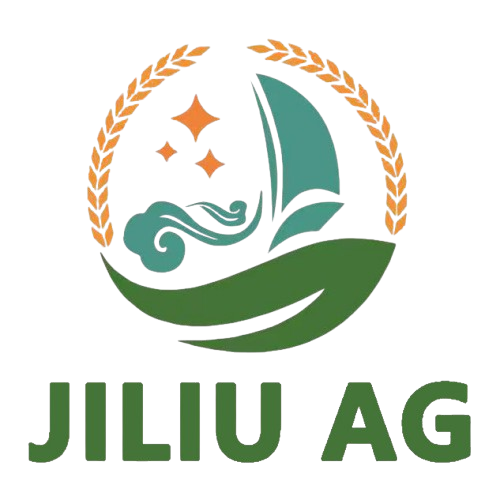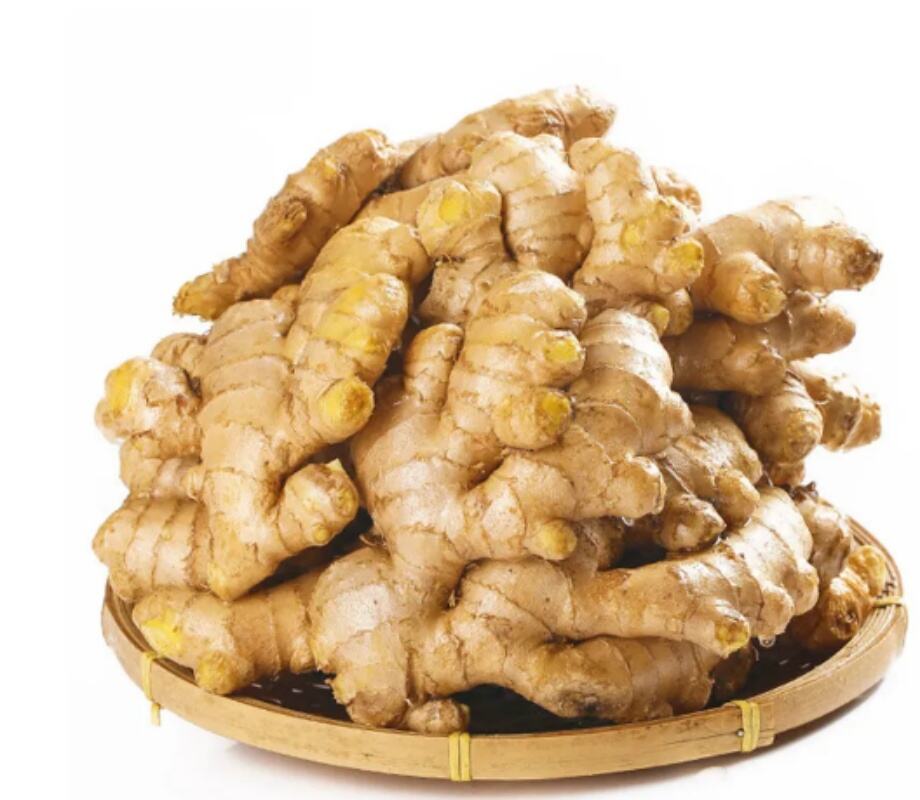The Growing Importance of Ginger in Global Food Processing
Ginger, known for its distinct flavor and numerous health benefits, has become a key ingredient in the food processing industry worldwide. As one of the most widely used spices in cooking, ginger’s applications extend far beyond the kitchen, playing a vital role in processed food products, beverages, and even dietary supplements. Its demand is continuously increasing due to its versatility, flavor-enhancing qualities, and health-promoting properties. This article explores why ginger is so essential for the global food processing industries and how it continues to shape product innovation and consumer trends.
The Role of Ginger in the Food Processing Industry
Ginger is a staple ingredient in many cultures, particularly in Asian, Middle Eastern, and Western cuisines. Over time, its uses in food processing have evolved from a flavoring agent to a functional ingredient with health-enhancing properties. In processed foods, ginger is used in a variety of forms, including fresh, dried, ground, and as ginger extracts. Its ability to impart a unique flavor and aroma makes it an indispensable component in the global food processing sector.
Flavor Enhancement in Food Products
One of the primary reasons why ginger is crucial for the food processing industry is its ability to enhance the flavor of products. Its strong, spicy-sweet taste can elevate both savory and sweet dishes. Ginger’s versatility allows it to be incorporated into a wide array of food items, such as sauces, soups, snacks, confectionery, and beverages.
Moreover, the use of ginger in food processing helps balance out other ingredients, particularly in complex flavor profiles. Whether in a soft drink, a baked good, or a savory dish, ginger provides a unique sharpness that complements and enhances the overall flavor experience. This versatility has led to its widespread use in the creation of innovative food products that cater to a diverse global market.
Health Benefits and Functional Foods
Ginger is known for its numerous health benefits, making it an increasingly popular ingredient in functional foods and beverages. From aiding digestion to reducing inflammation and boosting immunity, ginger is valued for its medicinal properties. The food processing industry has leveraged these benefits to create health-focused products that appeal to the growing consumer demand for functional and nutraceutical foods.
As more consumers turn to natural remedies and functional foods, ginger has found its place in a wide range of processed products such as health drinks, energy bars, and dietary supplements. The rising interest in plant-based diets and holistic health solutions further fuels ginger’s popularity in the food industry. Its antioxidant, anti-inflammatory, and antimicrobial properties make it a highly sought-after ingredient in health-conscious food formulations.

Ginger’s Versatility in Food Processing Applications
Use in Beverages and Confectionery
Ginger has become an essential ingredient in many beverages, from ginger ale and ginger beer to health drinks and teas. Its refreshing, spicy kick adds a unique flavor profile that appeals to a broad audience. In the beverage industry, ginger is often used in combination with other fruits, herbs, and spices to create complex and refreshing flavors. Its natural ability to aid digestion also makes it a preferred ingredient in wellness drinks and digestive tonics.
In confectionery, ginger is a popular addition to both sweet and savory snacks. Candied ginger, ginger cookies, and gingerbread are some classic examples of how this spice has been used to create products that offer both flavor and texture. Ginger’s ability to add warmth and spice makes it especially popular during the colder months, and its inclusion in seasonal confectionery items drives sales during peak shopping seasons.
Ginger in Sauces, Marinades, and Ready-to-Eat Meals
Another important application of ginger in food processing is in the creation of sauces, marinades, and ready-to-eat (RTE) meals. Ginger’s pungent flavor is often used in Asian-style sauces and marinades, where it adds depth and complexity to dishes like stir-fries, curries, and soups. In the ready-to-eat meal segment, ginger is used as a flavor enhancer to provide consumers with a convenient way to enjoy authentic flavors without the need for extensive preparation.
In addition to its flavor-enhancing capabilities, ginger’s antimicrobial properties make it a valuable ingredient in preserving the shelf life of processed foods. It helps reduce the growth of bacteria and fungi, which is especially beneficial in RTE products that require longer shelf stability.
The Growing Demand for Ginger in the Global Market
Supply Chain Considerations
As the demand for ginger continues to grow, so do the complexities surrounding its global supply chain. Ginger is primarily cultivated in countries such as India, China, and Indonesia, which are major exporters of the spice. However, fluctuations in climate conditions and crop yields can impact the availability and price of ginger, making it essential for the food processing industry to develop reliable sourcing strategies.
Companies involved in food processing must establish strong relationships with ginger producers and suppliers to ensure a consistent supply of high-quality ginger. Additionally, advancements in supply chain technologies and logistics have enabled exporters to better manage the distribution of ginger to global markets, ensuring freshness and quality control throughout the transportation process.
Market Trends and Consumer Preferences
The growing awareness of ginger’s health benefits has fueled a shift in consumer preferences, with many seeking products that contain natural ingredients like ginger. As more consumers become health-conscious and seek out functional foods, the demand for ginger-based products is expected to rise even further. This trend is not limited to traditional markets but is also expanding into emerging economies where ginger is gaining popularity due to its potential health advantages.
Food processing companies are responding to these market shifts by incorporating ginger into new product lines, from health drinks and functional snacks to soups, sauces, and frozen meals. As consumers continue to prioritize natural ingredients, the food processing industry is likely to see even greater demand for ginger as a key component in their product offerings.
Benefits of Using Ginger in Processed Foods
Natural Preservation and Shelf Life Extension
Ginger’s antimicrobial properties play a significant role in extending the shelf life of processed foods. The natural compounds found in ginger, such as gingerol and shogaol, have been shown to possess antibacterial and antifungal effects. This makes ginger an excellent natural preservative, particularly for products that are prone to bacterial contamination, such as sauces and ready-to-eat meals.
Using ginger in food processing allows manufacturers to reduce their reliance on synthetic preservatives, which appeals to consumers who are increasingly seeking clean-label, natural products. The use of ginger as a preservative can also help businesses meet consumer demand for products with fewer artificial additives and preservatives.
Cost-Effective and Sustainable Sourcing
As global demand for ginger increases, sustainable sourcing practices become even more important. Ginger is a relatively low-cost ingredient, and its health benefits make it an attractive option for companies looking to reduce production costs while maintaining product quality. Sustainable farming practices, such as organic farming, are becoming more common in ginger production, helping ensure that the spice is both environmentally friendly and ethically sourced.
Food processing companies can also look for suppliers who focus on fair trade practices, ensuring that ginger farmers are compensated fairly for their work and are supported in sustainable growing methods. This not only benefits the farmers but also aligns with the growing consumer demand for ethical sourcing and sustainability in food production.
FAQ
How does ginger enhance the flavor of food products?
Ginger adds a unique spicy-sweet kick that can balance out flavors in both savory and sweet dishes. It is often used in sauces, soups, snacks, beverages, and confectionery to create a complex and refreshing flavor profile.
What health benefits does ginger provide in food products?
Ginger is known for its anti-inflammatory, antioxidant, and antimicrobial properties. It can aid digestion, reduce nausea, and help boost immunity, making it a popular ingredient in functional foods and beverages.
How does ginger contribute to the preservation of processed foods?
Ginger’s natural antimicrobial properties help inhibit the growth of bacteria and fungi, which can extend the shelf life of processed foods like sauces, marinades, and ready-to-eat meals. This reduces the need for artificial preservatives in food products.
What are the challenges in sourcing ginger for food processing companies?
Sourcing ginger can be challenging due to climate fluctuations, crop yields, and the need for consistent quality. Food processing companies must establish strong relationships with reliable suppliers to secure a steady and high-quality supply of ginger for their products.

